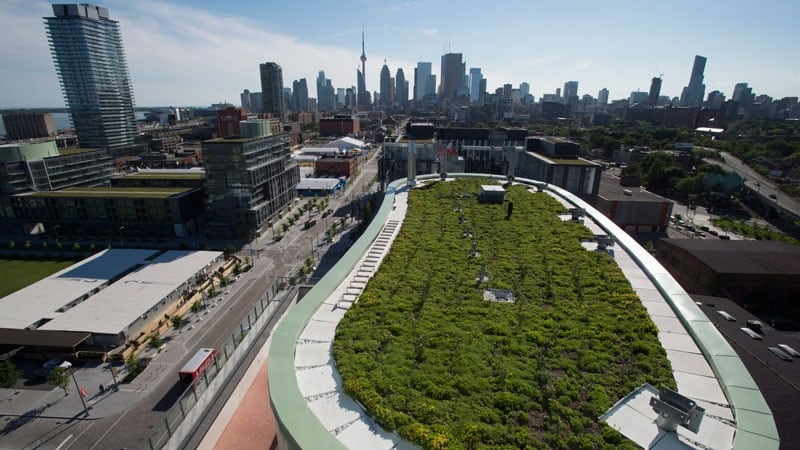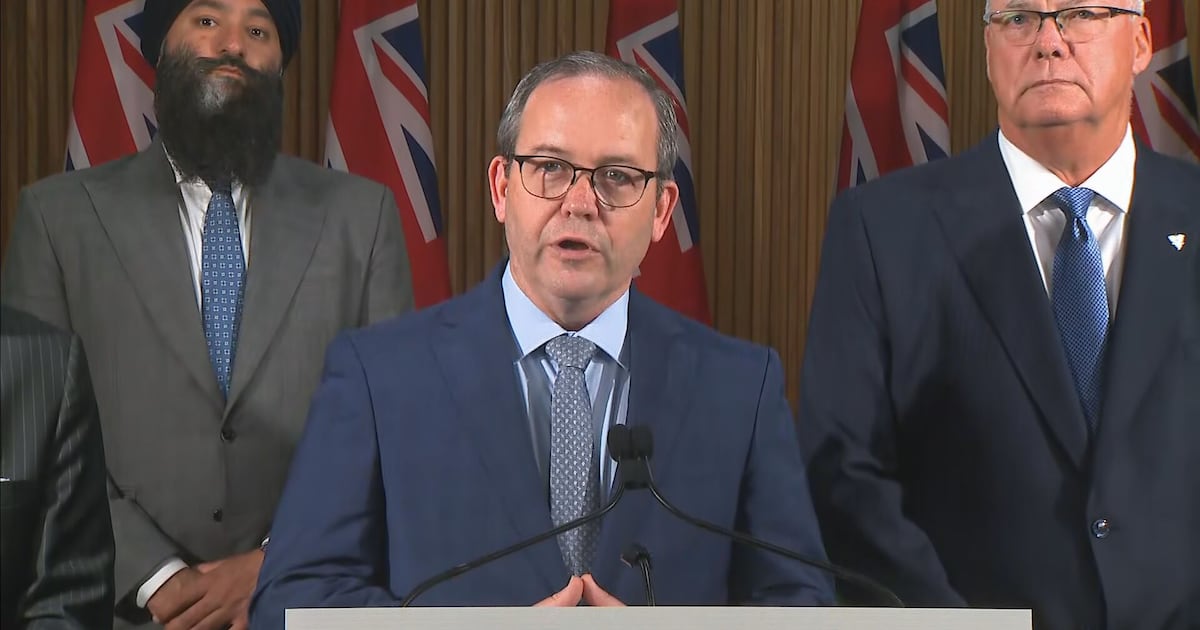The Ford government has introduced an omnibus bill that would change a range of laws and regulations, from green roofs to tenant evictions to driver's licenses.
The Fighting Delays, Building Faster Act proposes more than 40 changes to various regulations and laws.
Here is an overview of some of the proposed changes:
This makes it easier for apartment owners to terminate rental agreements
The province wants to explore the possibility of changing the “security of tenancy” that tenants are currently entitled to under the Residential Tenancies Act (RTA). Under current law, tenants have the right to remain in their rental unit as long as they comply with the rental agreement and the RTA. Under current law, landlords cannot evict tenants without good cause and after a fixed-term rental agreement expires, the tenancy usually continues on a month-to-month basis.
But the Ford government says it wants to consult on “alternative options at lease expiration” that would give landlords more control over their units and allow them to adapt rental arrangements to market conditions, personal needs or business strategies.
Speaking to reporters, Attorney General Doug Downey said the government hopes to make conditions more attractive for landlords to offer vacant apartments for rent, as it has heard “for years” that some landlords are not entering the market because they do not have confidence in it.
“We have heard from stakeholders that these perpetual leases with no end in sight may not be appropriate,” Downey said.
He said other jurisdictions are doing things differently and the province plans to consult “extensively” with landlords and tenants to see if there is a better way to “release apartments” that are not currently being rented.
“What we know is that there are a lot of landlords who aren't putting their units on the market. We need to get those units,” Downey said. “I believe that if we get the balance right, we will open up tens of thousands, hundreds of thousands of new units, and these will be places that people who don't currently have a place to live will be able to rent.”
Changes in disputes between landlord and tenant
The bill makes a number of changes to disputes between landlords and tenants. Among other things, tenants would be required to provide advance notice of the topics they intend to raise at hearings and would not be permitted to raise new topics without warning. The province says this is to avoid adjournments if parties are unwilling to talk about an issue.
The bill would also eliminate the requirement for a landlord to offer compensation to a tenant if they wish to take back their property for their own use, provided they provide 120 days' notice. If the landlord pays less, he or she must still pay one month's rent or offer a comparable unit as compensation.
Additionally, the province wants to reduce the grace period for issuing an eviction notice following non-payment of rent from 14 to seven days and reduce the time to request a review of a final hearing order from 30 to 15 days.
Driving licenses
The government wants to make changes to the experiences foreign drivers can use to get a driver's license in Ontario. The changes proposed in the bill would limit credit for foreign driving experience to 12 months and require all non-reciprocal applicants to complete both G2 and G road tests.
Applicants with proven experience could immediately take a G2 test and, if passed, drive independently. They would then have to wait at least 12 months before attempting the G road test.
Changes are also proposed for commercial licensing.
Abolish Toronto's green roof policy
The province says it wants to scrap Toronto's green roof bylaw, which establishes a green roof requirement for new buildings. The province says the bylaw increases costs and complexity for developers and results in an inconsistent approach across the province. Going forward, green roofs would be voluntary across Ontario. Developers would be encouraged to create them, but they would not be mandatory.

Ban on reducing the lane for bicycles
The province prohibits reducing vehicle lanes when municipalities install new bike lanes.
Water and sewer changes for Peel
The province wants to transfer responsibility for water and wastewater services from the Peel Regional Council to Mississauga, Brampton and Caledon and create a new public body model for the delivery of water and wastewater services.
Toronto on the water
The province says it will extend Waterfront Toronto's mandate from 2028 to 2035, with a possible extension to 2040.
Community Improvement Plans
Upper-tier municipalities without planning powers could create and fund Community Improvement Plans (CIPs) to support lower-tier municipalities. According to the province, the goal is to use the tool to support more housing infrastructure and economic development.
Reviewing building regulations and streamlining permits
The government says the bill will “reduce barriers to building homes and infrastructure” by streamlining permits and site plan control for municipalities in time for the spring building season.
It also proposes “a section-by-section review of the Ontario Building Code” to reduce regulations and speed up construction. However, the province promises the code will not be changed in a way that would jeopardize safety.
